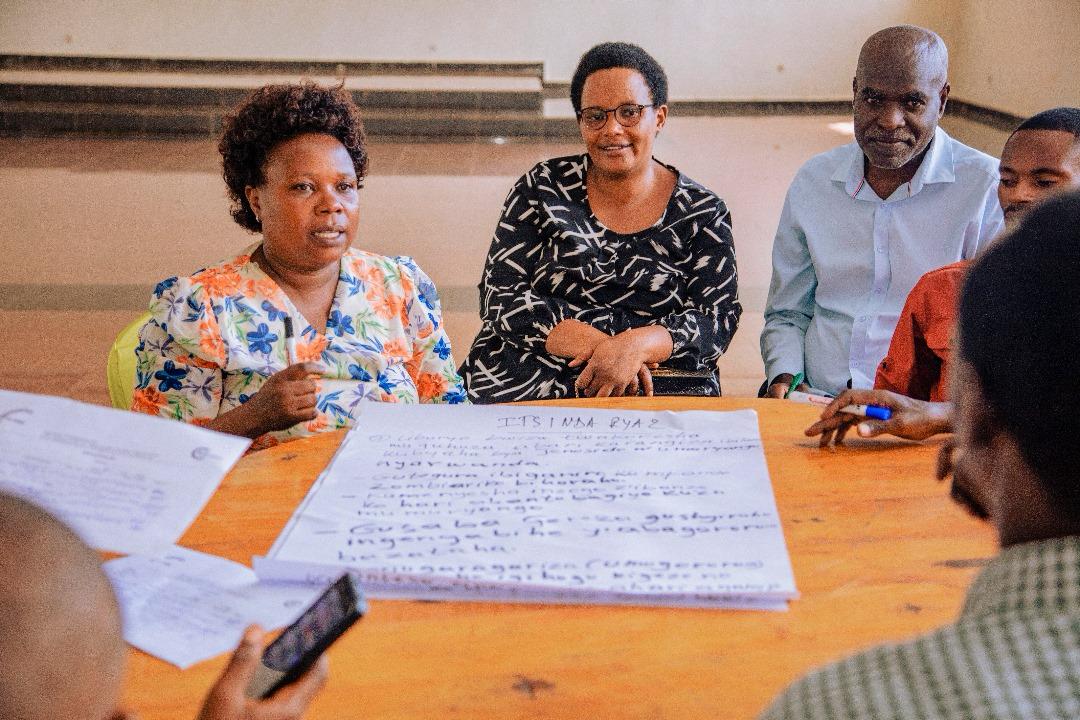Innocent Musore’s Call to Action: Advocating for a Greener Future Innocent Musore, Executive Director of GER-Rwanda, urged religious leaders to leverage their influence to advocate for nature. He emphasized the protection of biodiversity, the promotion of sustainable practices, and the need for a collective shift toward a greener, more sustainable future. Musore believes that by working together, religious figures can inspire a transformation in how communities view and interact with the environment, aligning environmental stewardship with faith-based principles. He asserted that protecting creation ensures peaceful coexistence for all living beings, reflecting God's will for the Earth.
Key Environmental Issues Highlighted During the discussions, several pressing environmental challenges were brought to the forefront, including:
• Climate Change: The impact of shifting weather patterns on agriculture, water supply, and community stability.
• Resource Scarcity: Peacebuilding efforts are increasingly threatened by competition for dwindling natural resources.
• Deforestation and Biodiversity Loss: The devastating effects of deforestation were contrasted with the urgent need for reforestation to restore ecosystems and mitigate climate impacts.
Uwacu Sylivie, a district representative, provided a vivid account of how human activities—such as pollution and deforestation—are directly contributing to environmental degradation. She explained that fewer trees result in less carbon dioxide being absorbed, which accelerates climate change. Her presentation helped participants understand how these global issues affect their local communities, emphasizing the immediate need for action.
The Role of Religious Institutions in Environmental Education Pastor Rwagitinywa Tito, a senior advisor to GER-Rwanda, highlighted the vital role that religious institutions must play in environmental education. He argued that religious leaders should teach not only why caring for the environment is important from a theological perspective but also how to do so through practical actions, such as tree planting and sustainable agriculture. Drawing from Genesis 1, Tito emphasized that God entrusted humanity with the care of the Earth, and neglecting biodiversity is a failure to fulfill this divine responsibility.
Actionable Measures for Community Engagement By the end of the meeting, participants had transitioned from uncertainty about environmental conservation to enthusiasm for implementing practical solutions. They developed a series of actionable measures to engage their communities in biodiversity preservation:
1. Tree Planting Initiatives: Participants committed to mobilizing their communities to plant both fruit and non-fruit trees regularly. This effort would start at the institutional level, with churches leading by example.
2. Advocacy and Environmental Education: Religious leaders pledged to incorporate messages on environmental and biodiversity conservation into their sermons and teachings, reinforcing the moral imperative of caring for the planet.
3. Youth Engagement: Participants recognized the importance of educating younger generations on environmental stewardship, ensuring that they understand their role in protecting the Earth.
4. Sustainable Construction: Encouraging the construction of environmentally friendly buildings that reduce ecological impact and promote sustainability.
5. Water Conservation: Leaders committed to promoting rainwater harvesting and water storage solutions to mitigate the effects of droughts and ensure sufficient water supply for agriculture.
6. Knowledge Sharing: Religious leaders promised to disseminate the knowledge gained during the meeting to other sectors and congregations, increasing community-wide awareness.
The Call for Continued Support and Future Training The participants expressed a strong desire for continued training on these topics, recognizing that there is still much to learn about environmental conservation. They requested GER-Rwanda's support in organizing more workshops with a focus on interactive discussions and practical implementation. Additionally, they asked for assistance in distributing seeds to facilitate tree planting initiatives within their communities.
Closing Remarks and a Vision for Expansion Innocent Musore concluded the meeting by thanking the participants for their active involvement and commitment to environmental stewardship. Mr. Sebatware Magellan, Director of Good Governance in Bugesera District, delivered closing remarks, commending GER-Rwanda for spearheading the initiative. He praised the collaboration between religious leaders and local authorities in addressing environmental challenges, stating, "The coordination between religious leaders, churches, and local stakeholders in protecting the environment is a significant step forward. We hope this initiative will spread across Rwanda, encouraging more communities to take part in conserving our natural resources."
Conclusion: A Unified Approach to Conservation and Peacebuilding The gathering in Bugesera District underscored the powerful connection between biodiversity conservation and peacebuilding. Participants acknowledged that environmental degradation can lead to community conflicts, while a healthier environment fosters unity, stability, and peace. By the end of the meeting, the religious leaders committed to becoming champions of environmental conservation, not only within their congregations but also in their broader communities. Their efforts, combined with GER-Rwanda’s continued support, are expected to spark a transformative movement towards sustainable development and environmental stewardship across Rwanda.

